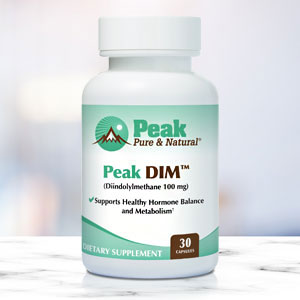Get Easy Health Digest™ in your inbox and don’t miss a thing when you subscribe today. Plus, get the free bonus report, Mother Nature’s Tips, Tricks and Remedies for Cholesterol, Blood Pressure & Blood Sugar as my way of saying welcome to the community!
13 sneaky things hurting your heart

Orthodox medical experts estimate that a large percentage of fatal heart attacks are avoidable with lifestyle changes. They go on to claim that two-thirds of patients who have already suffered a heart attack don’t make the necessary lifestyle shift to prevent another one.
But I’m convinced that this 30 percent figure far underestimates the control we have over our health. I believe 90 percent of heart attacks may be avoidable, but only about 10 percent of us know how to do this.
That’s due in large part to these 13 sneaky factors that could be setting you up for heart disease without a single clue…
13 sneaky causes of heart disease
1. Thyroid, adrenal, and sex hormone imbalances. We know that low testosterone levels correspond with increased heart attack risk. European endocrinologists have known for years that low thyroid function is a major contributor to heart disease. The Adrenal gland is where some of the sex steroid hormones are produced (androgens and estrogens) as well as your stress hormone, cortisol. When you drive down your cortisol production by chronic uncontrolled stress, your heart disease risk goes up and you age much quicker.
2. Digestive enzyme deficiency and low stomach acid contribute to constipation and an unhealthy intestinal microbiome.
3. Constipation and an unhealthy intestinal microbiome can cause inflammation and changes in the production of short-chain fatty acids — metabolites normally produced in the gut that regulate renin, an enzyme that helps regulate blood pressure.
4. Poor dental hygiene: A study of 11,869 people (mean age 50) who were followed for an average of 8.1 years for oral hygiene health and was reported in a 2010 British Medical Journal showing that cardiovascular events or death doubled in those who never/rarely brushed their teeth. Keep your mouth healthy to avoid this threat.
5. Hormones (xenoestrogens) and antibiotics (xenobiotics) that are routinely used for animal livestock growth and profitability. These ‘foreign’ molecules are also found in plastics, spermicides, detergents, and many personal care products which all can induce immune hypersensitivity and resulting inflammation in your heart vessels. Find info on testing hormone levels here.
6. Other prescription medications such as the cholesterol-lowering drugs Lipitor® and similar statins are known to deplete your critical energy-producing enzyme Coenzyme Q10. So do gemfibrozil (Lopid®), adriamycin (a chemotherapy drug), and certain beta blockers. Antibiotics promote yeast, resistant bacteria, and possibly even microscopic parasite overgrowth adding to inflammation.
7. Excessive electromagnetic frequencies (EMFs) from lap-top computers, cell phones, televisions, microwave ovens, and hair dryers have been reported to be disruptive to cells like electrochemical activity. Likewise, radiation exposure is known to oxidize LDL cholesterol which makes arterial plaque. Avoid exposure, at least in your own home, by limiting devices that omit these potential dangers.
8. Heavy metal exposure (i.e. mercury and antimony) is toxic to the heart muscle. Have you heard of EDTA? It was developed to help military personnel who had been exposed to heavy metals. Surprisingly it was found to help chelate build-up of arterial plaque.
9. Pesticide and insecticide exposure: Chemical food dyes, preservatives, pesticides, and herbicides trigger autoimmune hypersensitivity resulting in inflammation. The 12 foods that are most susceptible to pesticide residues that I recommend you buy organic are (a.k.a. the “dirty dozen”): apples, celery, cherries, tomatoes, cucumbers, grapes, hot peppers, nectarines, peaches, potatoes, spinach, strawberries, and sweet bell peppers.
10. Pre-diabetes, insulin resistance, and metabolic syndrome (now nearly 25% of American adults): abdominal obesity with high blood triglyceride level, glucose intolerance, hypertension. Pre-diabetes and elevated insulin levels can be reversed without using prescription medications.
11. Insulin over-production: Being overweight or obese raises blood volume, increases insulin production (which is inflammatory, a part of metabolic syndrome), and increases inflammatory chemicals known to promote heart disease, called cytokines. Read my 22 weight loss tips and how insulin fuels disease.
12. Sleep deprivation or poor quality sleep. Read my tips on better sleeping if this is a problem for you.
13. Poor sex life: sexual activity has a favorable effect on long term health. If you’re not having sex, your risks for heart problems and high blood pressure go up.
Editor’s note: Are you feeling unusually tired? You may think this is normal aging, but the problem could be your master hormone. When it’s not working, your risk of age-related diseases skyrockets. To reset what many call “the trigger for all disease” and live better, longer, click here to discover The Insulin Factor: How to Repair Your Body’s Master Controller and Conquer Chronic Disease!













